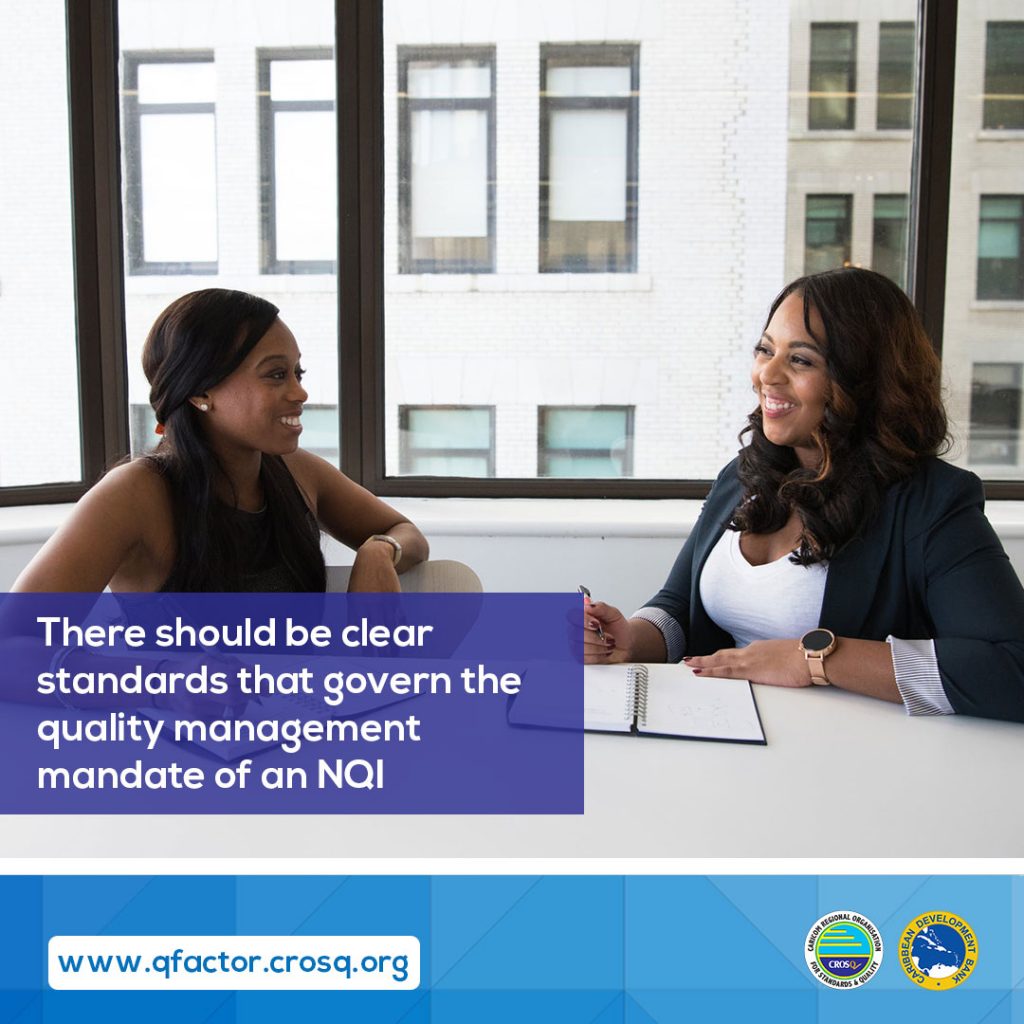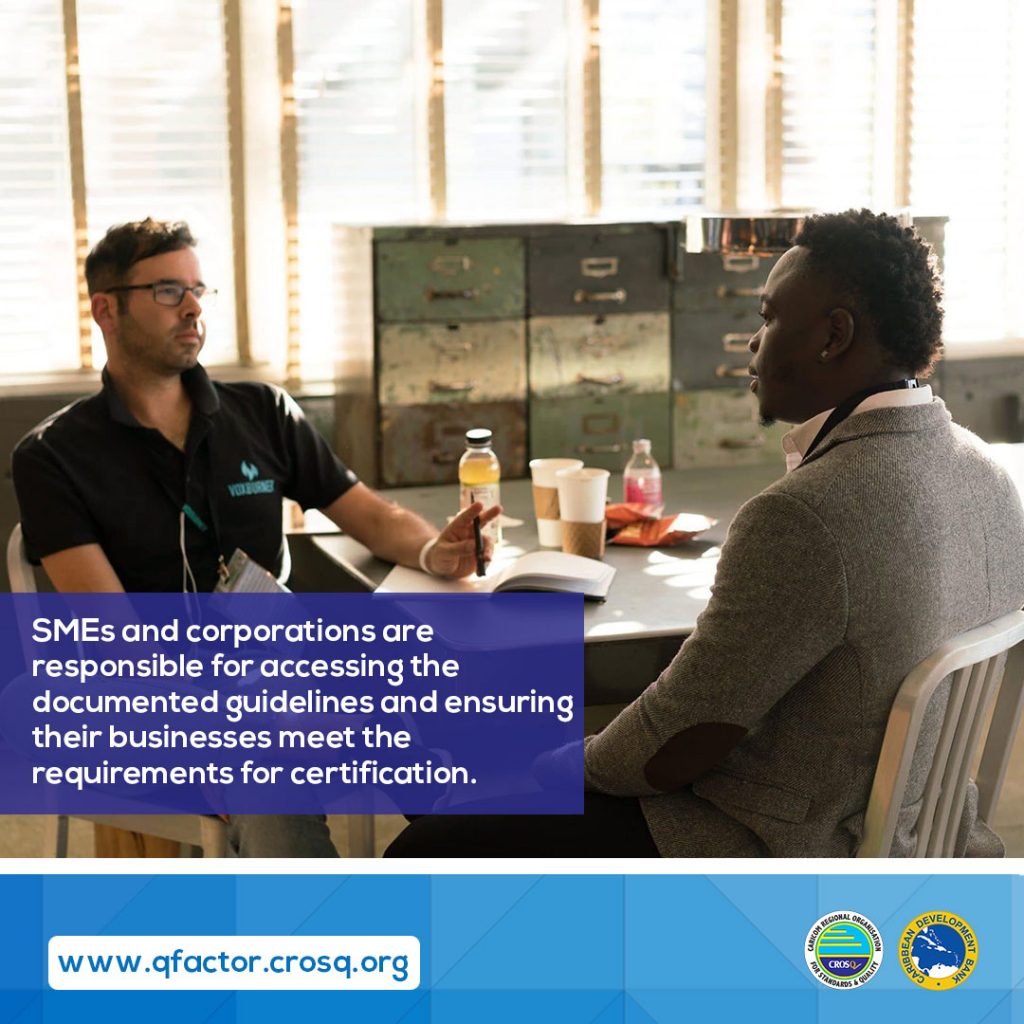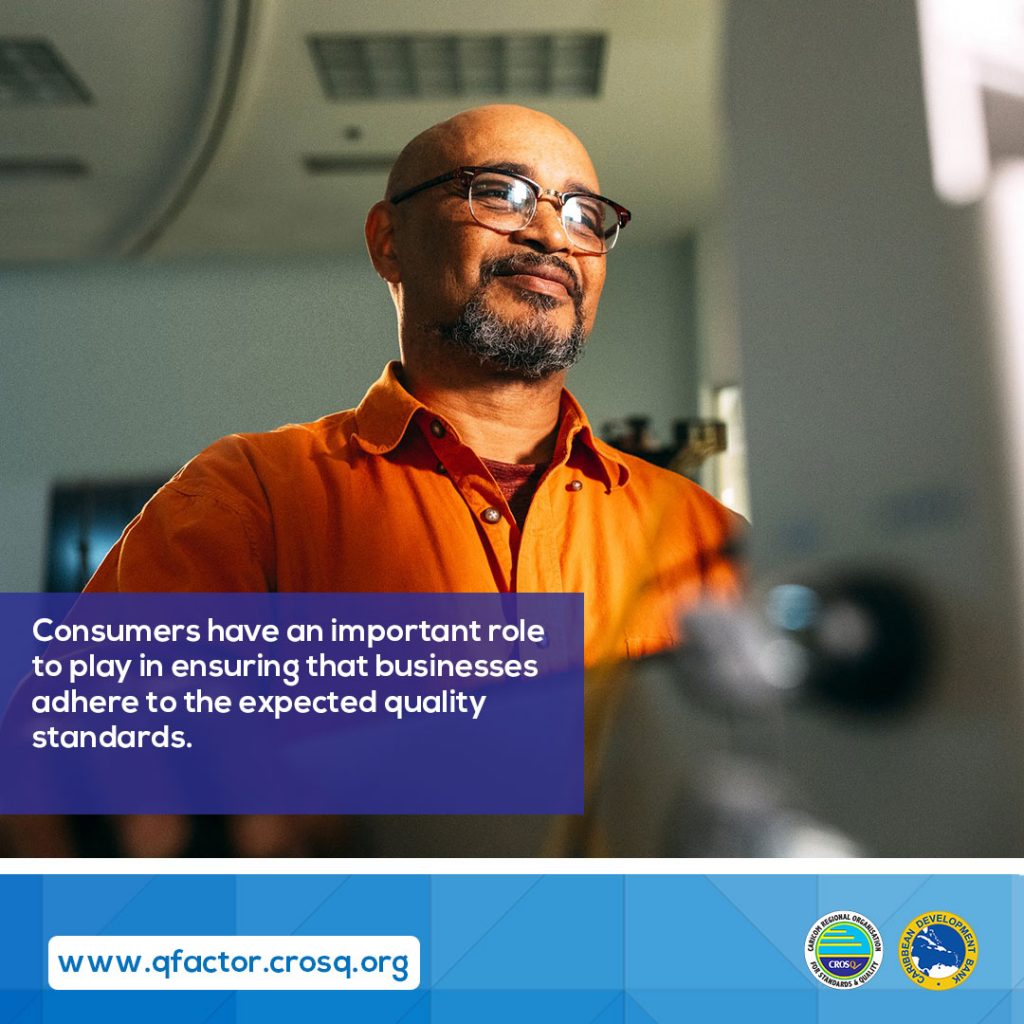A Closer Look at the Components and the Stakeholders of an NQI
- crosqblog
- on Oct, 13, 2019
- Category National Quality Policy
- No Comments.
A National Quality Infrastructure (NQI) plays a pivotal role in creating the framework for countries to effectively compete in the global marketplace. Effective implementation of an NQI requires collaboration among key stakeholders to efficiently develop and execute each of the three components. The five components of an effective NQI are:
- Standardization
- Conformity Assessment
- Metrology
- Accreditation
- Quality Promotions
This article lists the relevant stakeholders for each NQI component and explains their roles in successfully executing the component.
Standardization

Stakeholders needed: Government agencies, private sector organizations, standard setting organizations, regulators, academia, SMEs, corporations, civil society organisations
There should be clear standards that govern the quality management mandate of an NQI. Key stakeholders work together to create standards that will govern various industries within a country. These standards are usually mirrored against international standards, such as the ISO, ICC and others. Therefore, the standardization body ensures that local products and services are internationally competitive.
Government agencies, private sector organizations, regulators, standard setting organizations, civil society organisations and academia meet regularly to develop national standards, which are documents that mirror international standards for each industry. Government agencies can also provide additional support through collaborations with international organizations. CROSQ, for instance, operated in its role as a regional facilitation body when it collaborated with Underwriters Laboratories Inc. (UL) to improve standards related to the discovery of scientific knowledge. Individual governments can also forge relationships with international standards organizations, and many in the region hold memberships or observer status with such bodies through their National Standards Bureaux. SMEs and corporations are responsible for knowing the national standards and developing an internal quality policy based on these standards.
Conformity Assessment
Stakeholders needed: Government agencies, private sector organizations, academia, testing laboratories, certification bodies, inspection bodies, SMEs, and corporations
Conformity assessment guarantees that the requirements set by the NQI are fulfilled by a business. The techniques used are: testing, inspection, certification, auditing, evaluation, examination and assessment. A claim of conformity (certification) can be assigned to a business after the business passes the related requirements.
Government agencies work with private sector organizations, testing laboratories, certification bodies and inspection bodies to standardize the conformity assessment techniques and procedures so that there is consistency. Academics work on documenting conformity assessment guidelines based on these discussions. These documents are available in perpetuity and are revised periodically. SMEs and corporations are responsible for accessing the documented guidelines and ensuring their businesses meet the requirements for certification. Inspection bodies observe business practices to ensure that they meet industry standards. Testing laboratories test products to ensure that they conform to the agreed stipulations. Certification bodies issue certification based on the recommendations of inspection bodies and testing laboratories.
Metrology
Stakeholders needed: Government agencies, private sector organizations, National Metrology Institutes, testing bodies, certification bodies, inspection bodies
Metrology is the scientific study of measurement. Richard Asiedu, Head of the Industrial Metrology Department at Ghana explains, “Metrology is crucial to guarantee quality, competitiveness and optimisation of resources worldwide as it provides consumers with the assurance that correct measurements are carried out.” Therefore, all countries should have a National Metrology Institute that delineates national measurement standards and makes it possible to trace measurements.
All the stakeholders mentioned should clearly understand measurement standards so that accurate measurements can be carried out during conformity assessments and in everyday business practices. The National Metrology Institute plays a critical role in ensuring good measurement practices.
Accreditation

Stakeholders needed:
Accreditation is an equally important part of the infrastructure that makes up a nation’s quality practices. It refers to the procedures by which a national accreditation body recognises that an entity, mainly a laboratory, or individuals are competent to carry out specific tasks.
As the highest level of impartial quality assessment afforded to conformity assessment bodies, this recognition allows a country to interact more seamlessly, especially where trading and the verification of quality is concerned. It demonstrates the sheer competence of the assessments conducted on products allowed into the market place, and as such stakeholders charged with developing this infrastructure nationally must be adequately aware of the parameters and requirements for accreditation bodies and those charged with conducting assessments of quality.
Quality Promotion
Stakeholders needed: Communication officers, marketing and information officers; customer relations experts of Government agencies; private sector agencies; civil society; conformity assessment bodies; accreditation bodies; media;
As one of the newest developing aspects of quality infrastructure, quality promotions refers to the sustained development, education and sensitization of a national populace of quality consciousness and continuous improvement in the area of quality.
In order for all persons involved in the development of the NQI to be able to work together cohesively, it is necessary that each component understands and appreciates the roles played by the other parts. As such, general awareness is necessary to show and identify means of making the tasks under development known beyond just those immediately involved in the process and also to aid in filling any gaps that might exist in the information flows, especially to consumers.
The Important Role of Consumers

Consumers are not intricately involved in each component of the NQI. However, they have an important role to play in ensuring that businesses adhere to the expected quality standards. They should also know their rights and the government agency to which their complaints can be lodged. Consumers essentially help governments know if an NQI is being effectively enforced.
Putting It All Together
The five components of an NQI cannot be effectively implemented without the support of relevant stakeholders. Government agencies and quality infrastructure bodies put the components together and enforce the regulations. Enterprises should ensure that they meet the requirements and develop internal quality policies that mirror those set in the NQI. Consumers exercise their rights to ensure that enterprises are consistently conforming to quality standards.




